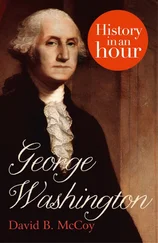Henry Cabot Lodge - George Washington, Volume I
Здесь есть возможность читать онлайн «Henry Cabot Lodge - George Washington, Volume I» — ознакомительный отрывок электронной книги совершенно бесплатно, а после прочтения отрывка купить полную версию. В некоторых случаях можно слушать аудио, скачать через торрент в формате fb2 и присутствует краткое содержание. Жанр: Биографии и Мемуары, История, foreign_edu, foreign_antique, foreign_prose, на английском языке. Описание произведения, (предисловие) а так же отзывы посетителей доступны на портале библиотеки ЛибКат.
- Название:George Washington, Volume I
- Автор:
- Жанр:
- Год:неизвестен
- ISBN:нет данных
- Рейтинг книги:5 / 5. Голосов: 1
-
Избранное:Добавить в избранное
- Отзывы:
-
Ваша оценка:
- 100
- 1
- 2
- 3
- 4
- 5
George Washington, Volume I: краткое содержание, описание и аннотация
Предлагаем к чтению аннотацию, описание, краткое содержание или предисловие (зависит от того, что написал сам автор книги «George Washington, Volume I»). Если вы не нашли необходимую информацию о книге — напишите в комментариях, мы постараемся отыскать её.
George Washington, Volume I — читать онлайн ознакомительный отрывок
Ниже представлен текст книги, разбитый по страницам. Система сохранения места последней прочитанной страницы, позволяет с удобством читать онлайн бесплатно книгу «George Washington, Volume I», без необходимости каждый раз заново искать на чём Вы остановились. Поставьте закладку, и сможете в любой момент перейти на страницу, на которой закончили чтение.
Интервал:
Закладка:
In that interesting land where everything, according to our narrow ideas, is upside down, it is customary, when an individual arrives at distinction, to confer nobility upon his ancestors instead of upon his children. The Washingtons offer an interesting example of the application of this Chinese system in the Western world, for, if they have not been actually ennobled in recognition of the deeds of their great descendant, they have at least become the subjects of intense and general interest. Every one of the name who could be discovered anywhere has been dragged forth into the light, and has had all that was known about him duly recorded and set down. By scanning family trees and pedigrees, and picking up stray bits of information here and there, we can learn in a rude and general fashion what manner of men those were who claimed descent from William of Hertburn, and who bore the name of Washington in the mother-country. As Mr. Galton passes a hundred faces before the same highly sensitized plate, and gets a photograph which is a likeness of no one of his subjects, and yet resembles them all, so we may turn the camera of history upon these Washingtons, as they flash up for a moment from the dim past, and hope to obtain what Professor Huxley calls a "generic" picture of the race, even if the outlines be somewhat blurred and indistinct.
In the North of England, in the region conquered first by Saxons and then by Danes, lies the little village of Washington. It came into the possession of Sir William de Hertburn, and belonged to him at the time of the Boldon Book in 1183. Soon after, he or his descendants took the name of De Wessyngton, and there they remained for two centuries, knights of the palatinate, holding their lands by a military tenure, fighting in all the wars, and taking part in tournaments with becoming splendor. By the beginning of the fifteenth century the line of feudal knights of the palatinate was extinct, and the manor passed from the family by the marriage of Dionisia de Wessyngton. But the main stock had in the mean time thrown out many offshoots, which had taken firm root in other parts and in many counties of England. We hear of several who came in various ways to eminence. There was the learned and vigorous prior of Durham, John de Wessyngton, probably one of the original family, and the name appears in various places after his time in records and on monuments, indicating a flourishing and increasing race. Lawrence Washington, the direct ancestor of the first President of the United States, was, in the sixteenth century, the mayor of Northampton, and received from King Henry VIII. the manor of Sulgrave in 1538. In the next century we find traces of Robert Washington of the Adwick family, a rich merchant of Leeds, and of his son Joseph Washington, a learned lawyer and author, of Gray's Inn. About the same time we hear of Richard Washington and Philip Washington holding high places at University College, Oxford. The Sulgrave branch, however, was the most numerous and prosperous. From the mayor of Northampton were descended Sir William Washington, who married the half-sister of George Villiers, Duke of Buckingham; Sir Henry Washington, who made a desperate defense of Worcester against the forces of the Parliament in 1646; Lieutenant-Colonel James Washington, who fell at the siege of Pontefract, fighting for King Charles; another James, of a later time, who was implicated in Monmouth's rebellion, fled to Holland and became the progenitor of a flourishing and successful family, which has spread to Germany and there been ennobled; Sir Lawrence Washington, of Garsdon, whose grand-daughter married Robert Shirley, Baron Ferrers; and others of less note, but all men of property and standing. They seem to have been a successful, thrifty race, owning lands and estates, wise magistrates and good soldiers, marrying well, and increasing their wealth and strength from generation to generation. They were of Norman stock, knights and gentlemen in the full sense of the word before the French Revolution, and we can detect in them here and there a marked strain of the old Norse blood, carrying with it across the centuries the wild Berserker spirit which for centuries made the adventurous Northmen the terror of Europe. They were a strong race evidently, these Washingtons, whom we see now only by glimpses through the mists of time, not brilliant apparently, never winning the very highest fortune, having their failures and reverses no doubt, but on the whole prudent, bold men, always important in their several stations, ready to fight and ready to work, and as a rule successful in that which they set themselves to do.
In 1658 the two brothers, John and Lawrence, appeared in Virginia. As has been proved by Mr. Waters, they were of the Sulgrave family, the sons of Lawrence Washington, fifth son of the elder Lawrence of Sulgrave and Brington. The father of the emigrants was a fellow of Brasenose College, Oxford, and rector of Purleigh, from which living he was ejected by the Puritans as both "scandalous" and "malignant." That he was guilty of the former charge we may well doubt; but that he was, in the language of the time, "malignant," must be admitted, for all his family, including his brothers, Sir William Washington of Packington, and Sir John Washington of Thrapston, his nephew, Sir Henry Washington, and his nephew-in-law, William Legge, ancestor of the Earl of Dartmouth, were strongly on the side of the king. In a marriage which seems to have been regarded as beneath the dignity of the family, and in the poverty consequent upon the ejectment from his living, we can find the reason for the sons of the Rev. Lawrence Washington going forth into Virginia to find their fortune, and flying from the world of victorious Puritanism which offered just then so little hope to royalists like themselves. Yet what was poverty in England was something much more agreeable in the New World of America. The emigrant brothers at all events seem to have had resources of a sufficient kind, and to have been men of substance, for they purchased lands and established themselves at Bridges Creek, in Westmoreland County. With this brief statement, Lawrence disappears, leaving us nothing further than the knowledge that he had numerous descendants. John, with whom we are more concerned, figures at once in the colonial records of Maryland. He made complaint to the Maryland authorities, soon after his arrival, against Edward Prescott, merchant, and captain of the ship in which he had come over, for hanging a woman during the voyage for witchcraft. We have a letter of his, explaining that he could not appear at the first trial because he was about to baptize his son, and had bidden the neighbors and gossips to the feast. A little incident this, dug out of the musty records, but it shows us an active, generous man, intolerant of oppression, public-spirited and hospitable, social, and friendly in his new relations. He soon after was called to mourn the death of his English wife and of two children, but he speedily consoled himself by taking a second wife, Anne Pope, by whom he had three children, Lawrence, John, and Anne. According to the Virginian tradition, John Washington the elder was a surveyor, and made a location of lands which was set aside because they had been assigned to the Indians. It is quite apparent that he was a forehanded person who acquired property and impressed himself upon his neighbors. In 1667, when he had been but ten years in the colony, he was chosen to the House of Burgesses; and eight years later he was made a colonel and sent with a thousand men to join the Marylanders in destroying the "Susquehannocks," at the "Piscataway" fort, on account of some murdering begun by another tribe. As a feat of arms, the expedition was not a very brilliant affair. The Virginians and Marylanders killed half a dozen Indian chiefs during a parley, and then invested the fort. After repulsing several sorties, they stupidly allowed the Indians to escape in the night and carry murder and pillage through the outlying settlements, lighting up first the flames of savage war and then the fiercer fire of domestic insurrection. In the next year we hear again of John Washington in the House of Burgesses, when Sir William Berkeley assailed his troops for the murder of the Indians during the parley. Popular feeling, however, was clearly with the colonel, for nothing was done and the matter dropped. At that point, too, in 1676, John Washington disappears from sight, and we know only that as his will was proved in 1677, he must have died soon after the scene with Berkeley. He was buried in the family vault at Bridges Creek, and left a good estate to be divided among his children. The colonel was evidently both a prudent and popular man, and quite disposed to bustle about in the world in which he found himself. He acquired lands, came to the front at once as a leader although a new-comer in the country, was evidently a fighting man as is shown by his selection to command the Virginian forces, and was honored by his neighbors, who gave his name to the parish in which he dwelt. Then he died and his son Lawrence reigned in his stead, and became by his wife, Mildred Warner, the father of John, Augustine, and Mildred Washington.
Читать дальшеИнтервал:
Закладка:
Похожие книги на «George Washington, Volume I»
Представляем Вашему вниманию похожие книги на «George Washington, Volume I» списком для выбора. Мы отобрали схожую по названию и смыслу литературу в надежде предоставить читателям больше вариантов отыскать новые, интересные, ещё непрочитанные произведения.
Обсуждение, отзывы о книге «George Washington, Volume I» и просто собственные мнения читателей. Оставьте ваши комментарии, напишите, что Вы думаете о произведении, его смысле или главных героях. Укажите что конкретно понравилось, а что нет, и почему Вы так считаете.












